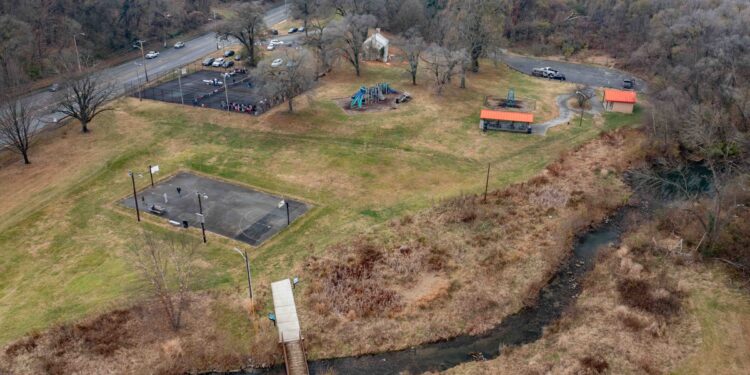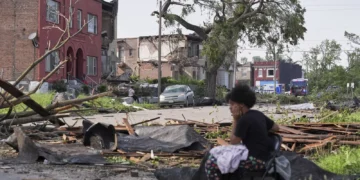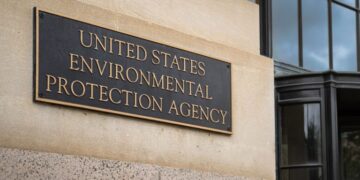March 19, 2025 Story by: Editor
Rats darting through school hallways. A foul stench spreading through the surrounding neighborhood. “This is the kind of thing from which social riots are made,” the Reverend James A. Allison cautioned members of the Roanoke City Council in 1963. His outrage stemmed from the city’s decision to place a municipal garbage dump in Washington Park, located at the heart of Roanoke’s segregated Black community.
“You had Black people at Lincoln Terrace, children, getting ill,” recalled Nathanial Benjamin, grandson of the Reverend R.R. Wilkinson, then-president of Roanoke’s NAACP chapter. “They had to go through [the dump] to the schools, to Lucy Addison.” Now, six decades later, Benjamin believes those children—now elderly—suffer from long-term health issues. “Some of them have asthma,” he noted, attributing respiratory problems to their exposure to the dump.
Today, as Roanoke prepares to unveil major improvements in Washington Park—including a new swimming pool set to open this summer—many still grapple with the city’s history of urban planning decisions that disproportionately affected Black neighborhoods. Over the years, areas like Washington Park and Evans Spring have been targeted for projects such as garbage dumps, highways, and large retail stores.
“There is a term for this,” Benjamin explained, “environmental racism.”
A Park for Black Roanoke
A 1909 city planning document lamented the destruction of green spaces in Gainsboro, an area just south of modern-day Washington Park. It described what had once been “beautiful rolling country with high hills and deep valleys” but was now “dotted over with ramshackle… cabins that hang insecurely on the side hills.” The plan suggested preserving open spaces on the city’s north side for a public park.
However, racial disparities were evident in the city’s approach to park development. While predominantly white neighborhoods saw the creation of Highland Park and Elmwood Park in the early 1900s, it wasn’t until 1922 that Roanoke began acquiring land north of Gainsboro for a park serving the Black community. A year later, Washington Park opened, albeit on a smaller footprint than today.
During the Jim Crow era, privately owned Black amusement parks attracted the largest crowds. Dreamland, an entertainment venue near present-day YMCA Express, flourished in the 1930s and 1940s, while Springwood Park, located near the modern Lincoln Terrace Elementary School, operated a swimming pool and dance hall. Oral histories from Gainsboro residents in the 2000s recall the park’s vibrant past.
“When you got to Washington Park, they had the swimming pool and the dance hall over there, and there were a lot of picnics in Washington Park,” one resident remembered. “People came from everywhere on Sundays and holidays.” Another recalled that “during the time of segregation, we had Black people coming from Lynchburg, Bedford, and everywhere else to go to Washington Park.”
However, by the 1940s, Washington Park’s recreational spaces were under threat as the city turned the area into a municipal landfill.
Civil Rights Activists Push Back
By the 1960s, conditions at the Washington Park dump had deteriorated significantly. “It was just horrendous,” Benjamin said. One resident told him that his father had organized “rifle clubs just for the rats, to kill the rats, to get the rats out of the neighborhood.” Fires frequently erupted due to gas emissions from the dump, and even dead rats were discovered in the park’s swimming pool.
The Civil Rights Movement in the South is often associated with school integration, bus boycotts, and sit-ins, but activists also fought against environmental racism.
“The targeting of Black communities for municipal dumping was really prominent in the U.S. South because of structural racism,” explained Mary Finley-Brook, a University of Richmond professor specializing in environmental justice. She noted that government and corporate interests often “use their power to lobby and make sure that when dumps get sited, they’re being sited in areas that are vulnerable.”
Roanoke was no exception. The Washington Park dump became a focal point for local Civil Rights activists. By the early 1960s, Roanoke’s Black community had made some strides in desegregating lunch counters and elementary schools, yet systemic inequality persisted.
Wilkinson, a prominent Civil Rights leader and pastor at Hill Street Baptist Church, was closely following the national movement. Dr. Martin Luther King Jr.’s 1963 Birmingham campaign—including his famous “Letter from a Birmingham Jail”—inspired Roanoke activists.
Seeing an opportunity to exert pressure, Wilkinson and his ally, Rev. James Allison, warned city leaders of potential protests. Allison, a white pastor at Raleigh Court Presbyterian Church, cautioned Roanoke’s City Council in May 1963 that the city risked facing “Birmingham-type” demonstrations if the dump remained open.
“My grandfather always had a Plan B,” Benjamin said. “And he told the City Council that if you don’t get that dump moved out by a certain date… that he will lead a group of mothers with their babies and carriages down to Washington Park, and he’ll form a human chain to block the dump trucks from entering. … And so you can imagine the faces of the City Council members, right?”
A week before Wilkinson’s deadline, City Council voted to shut down the dump, avoiding what became known as the “baby carriage brigade.” However, the city promptly moved its waste disposal to East Gate Park, another predominantly Black neighborhood.
The Lasting Impact of Landfill Parks
Following the dump’s closure, Washington Park was covered with dirt from Interstate 581’s construction. In the 1970s, a swimming pool was built near the former landfill, only to be demolished in 2023 due to structural issues linked to environmental contamination.
“It was leaking water substantially,” explained Katie Slusher, Roanoke’s park project manager. Soil tests revealed that landfill material kind of thing from which social riots are made,” the Reverend James A. Allison cautioned the Roanoke City Council in 1963. His frustration stemmed from the city’s decision to place a municipal garbage dump in Washington Park, right in the heart of Roanoke’s segregated Black community.
“You had Black people at Lincoln Terrace, children, getting ill,” recalled Nathanial Benjamin, grandson of the Reverend R.R. Wilkinson, who at the time served as the president of the Roanoke chapter of the NAACP. “They had to go through [the dump] to the schools, to Lucy Addison.” Decades later, Benjamin believes that many of those children, now elderly, have “developed respiratory problems because of living in that dump area. Some of them have asthma.”
As the city prepares to introduce major upgrades to Washington Park, including a new swimming pool set to open this summer, the history of Roanoke’s urban planning decisions in predominantly Black neighborhoods continues to raise concerns. From Washington Park to Evans Spring, Black communities have long been the chosen locations for garbage dumps, highways, and large commercial developments.
Benjamin describes this pattern with a term: environmental racism.
A Park for Black Roanoke
Roanoke’s first comprehensive plan, published in 1909, lamented the destruction of green spaces in Gainsboro, an area just south of today’s Washington Park. The plan noted that what “was originally beautiful rolling country with high hills and deep valleys” had been overtaken by “ramshackle… cabins that hang insecurely on the side hills.” The report recommended setting aside land in the northern part of the city for a public park.
Racial segregation played a role in Roanoke’s early park development. While Highland Park and Elmwood Park were established in predominantly white neighborhoods in the early 1900s, the city didn’t begin purchasing private lots for a park to serve the Black community until 1922. The park, which initially had a smaller footprint than it does today, opened to the public in 1923.
During the Jim Crow era, however, Black-owned private parks were more popular gathering spots for Roanoke’s Black residents. Dreamland, an amusement park located along what is now Orange Avenue near the present-day YMCA Express building, operated in the 1930s and 1940s. Another entertainment hub, Springwood Park, located near today’s Lincoln Terrace Elementary School, featured a swimming pool and a dance hall.
Oral histories collected from Gainsboro residents in the 2000s reflect fond memories of these spaces. “When you got to Washington Park, they had the swimming pool and the dance hall over there and there were a lot of picnics in Washington Park. People came from everywhere on Sundays and holidays to have picnics in Washington Park.” Another long-time resident recalled, “During the time of segregation, we had Black people coming from Lynchburg, Bedford, and everywhere else to go to Washington Park.”
However, by the 1940s, Washington Park’s recreational amenities were overshadowed by the city’s decision to turn it into a dumping ground.
A Rallying Cry for Civil Rights
By the 1960s, conditions at the Washington Park dump had become “just horrendous,” according to Benjamin. One Roanoke resident told him that his father started “forming rifle clubs just for the rats, to kill the rats, to get the rats out of the neighborhood.” Others remembered frequent fires caused by “gas fumes from the dump” and even dead rats floating in the park’s swimming pool. “I guess it just made the people to where they had had enough. They wouldn’t take no for an answer.”
While the Civil Rights movement in the South is often associated with school integration, bus boycotts, and sit-ins, another significant struggle was the fight against environmental racism.
Mary Finley-Brook, an environmental justice expert and professor at the University of Richmond, explained that the practice of placing garbage dumps in Black neighborhoods was “really prominent in the U.S. South because of structural racism.” She noted that governments and corporations “are able to really use their power to lobby and make sure that when dumps get sited, they’re being sited in areas that are vulnerable.” As small local landfills like the one in Washington Park closed, cities like Roanoke began shipping their waste to massive landfills, which continued to be placed in low-income communities.
Roanoke still has at least three parks that were built on top of former landfills: Washington Park, Fallon Park, and East Gate Park.
What makes Washington Park significant is that it was the city’s primary dump in the historically Black Northwest quadrant and became a focal point of Roanoke’s Civil Rights movement.
During the early 1960s, Black activists in Roanoke had secured some victories, including the peaceful integration of lunch counters and a few elementary schools, but the broader fight for racial equality was far from over.
Wilkinson, pastor at Hill Street Baptist Church and president of the local NAACP chapter, closely followed the national Civil Rights movement. Dr. Martin Luther King Jr. ‘s 1963 Birmingham campaign, which led to his famous “Letter from a Birmingham Jail,” deeply influenced Roanoke’s activists. Residents watched news footage of Black protesters being attacked by police dogs and blasted with fire hoses.
Seizing the moment, Wilkinson pressured Roanoke’s mayor and City Council to close the dump. He was supported by Rev. James Allison, a white pastor at Raleigh Court Presbyterian Church, who warned City Council in May 1963 that if they failed to act, Roanoke could see “Birmingham-type” demonstrations.
“My grandfather always had a Plan B,” Benjamin recalled. “And he told the City Council that if you don’t get that dump moved out by a certain date… that he will lead a group of mothers with their babies and carriages down to Washington Park, and he’ll form a human chain to block the dump trucks from entering. … And so you can imagine the faces of the City Council members, right?”
Just one week before Wilkinson’s deadline, the City Council voted to shut down the garbage dump, preventing what could have been a dramatic protest. The city then relocated its waste to an area near Tinker Creek—now East Gate Park—angering the predominantly white residents there.
Lingering Environmental Concerns
After the Washington Park dump was closed, it was quickly covered with “construction dirt” from the Interstate 581 excavation. By the 1970s, a new swimming pool had been built next to the former landfill. However, in 2023, the city demolished that pool after discovering structural problems linked to environmental damage.
“It was leaking water substantially,” explained Katie Slusher, park project manager for the city. Soil tests revealed that landfill materials had “migrated underground in such a way that it had affected the soils underneath where that pool was.” The unstable ground means that even simple playing fields are risky, as “soft spots” could cause the earth to collapse. This is why Washington Park’s football field is located on the park’s edge rather than over the landfill.
A new swimming pool is currently under construction, closer to where Dreamland’s pool once stood. Community members advocated for shifting the pool’s location to protect a 19th-century caretaker’s house, which they argue is a rare surviving piece of Washington Park’s Black history. The city has yet to decide what to do with the house. Meanwhile, the parks department is planning a mural for the new pool house, with hopes that it will honor Dreamland’s legacy.
In 2023, Roanoke also renamed a street cutting through Washington Park after Wilkinson.
Benjamin believes his grandfather would have mixed feelings about these changes. “I think he would be actually pleased and not pleased at the same time,” he said. “You know, just the dump is basically not here today, right? However, apparently there’s still something there. Maybe they didn’t do as thorough a job of cleaning up that dump as we thought.”
A 2024 report from the city’s stormwater division listed Washington Park, East Gate Park, and Fallon Park as sites of former landfills with a “suspected legacy” of PCB contamination, a chemical classified by the U.S. Environmental Protection Agency as a “probable human carcinogen.”
Future developments in Washington Park will be shaped by an upcoming planning process, and city officials are encouraging residents to participate. As the community looks ahead, it will also need to reckon with the park’s past and the lasting effects of environmental racism. Source: Roanoke Rambler

















